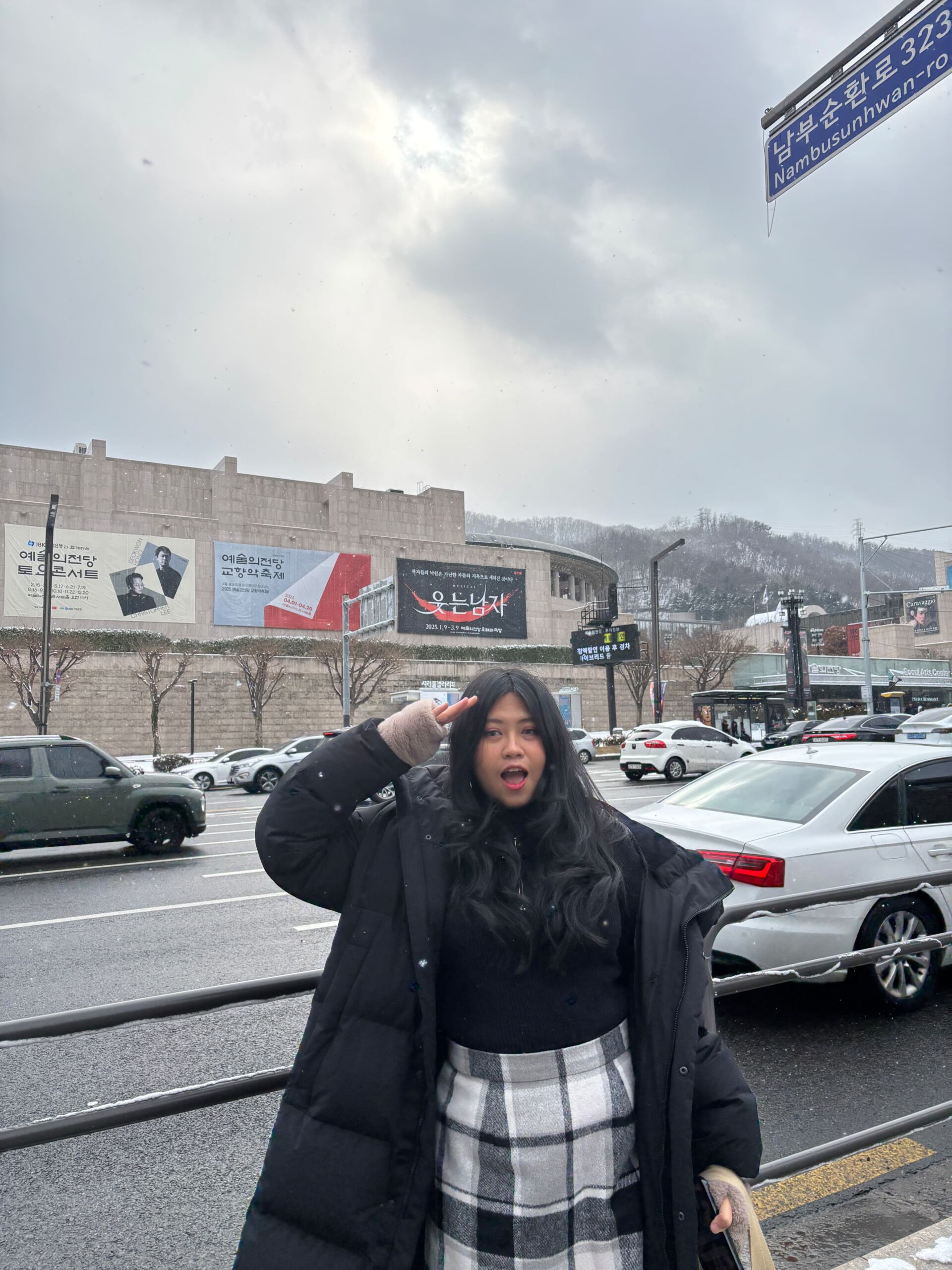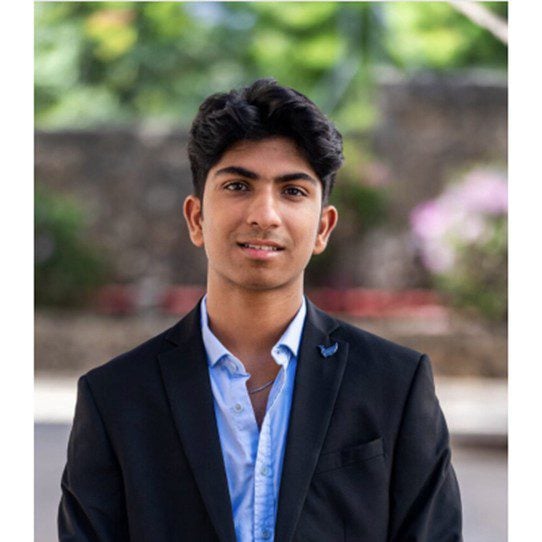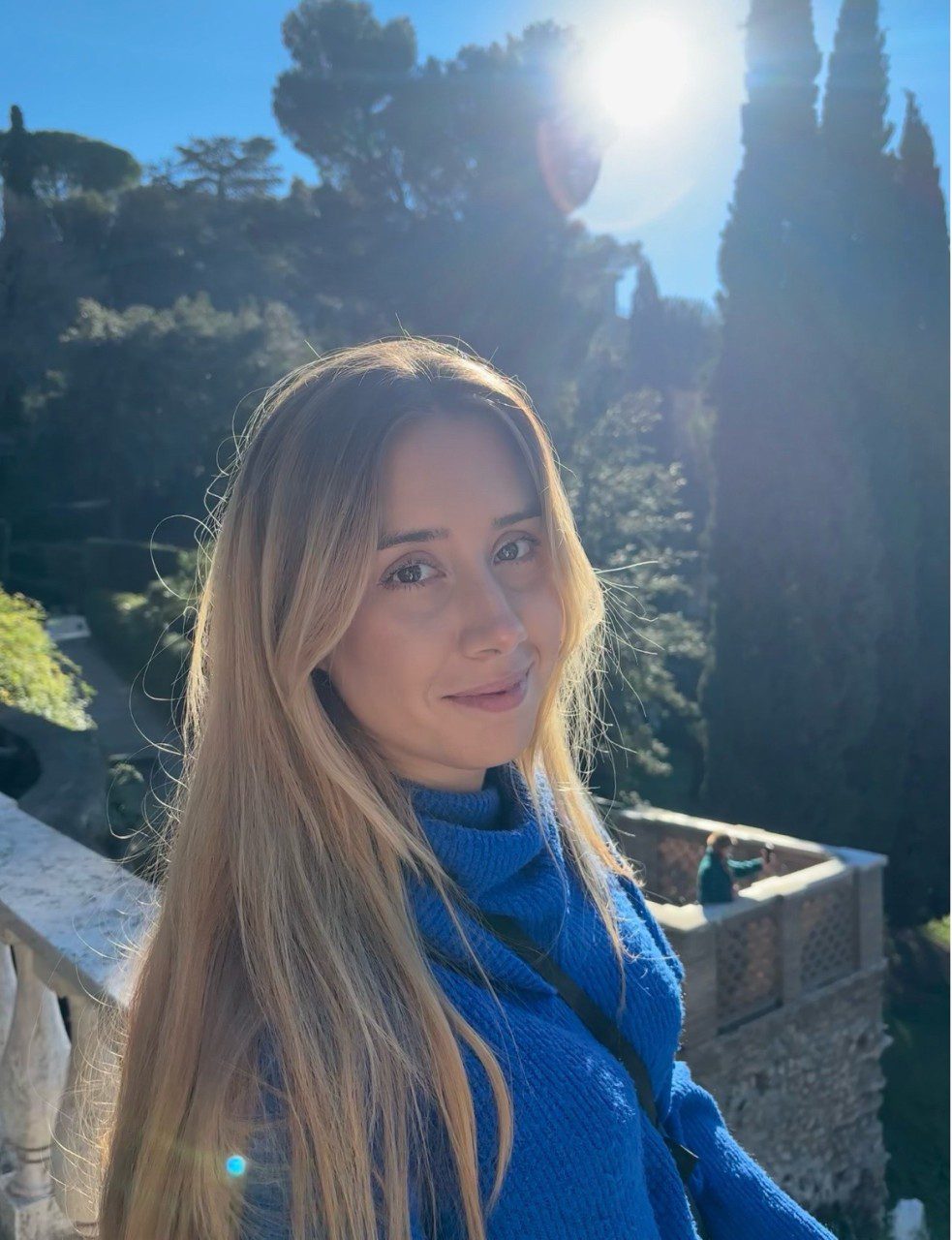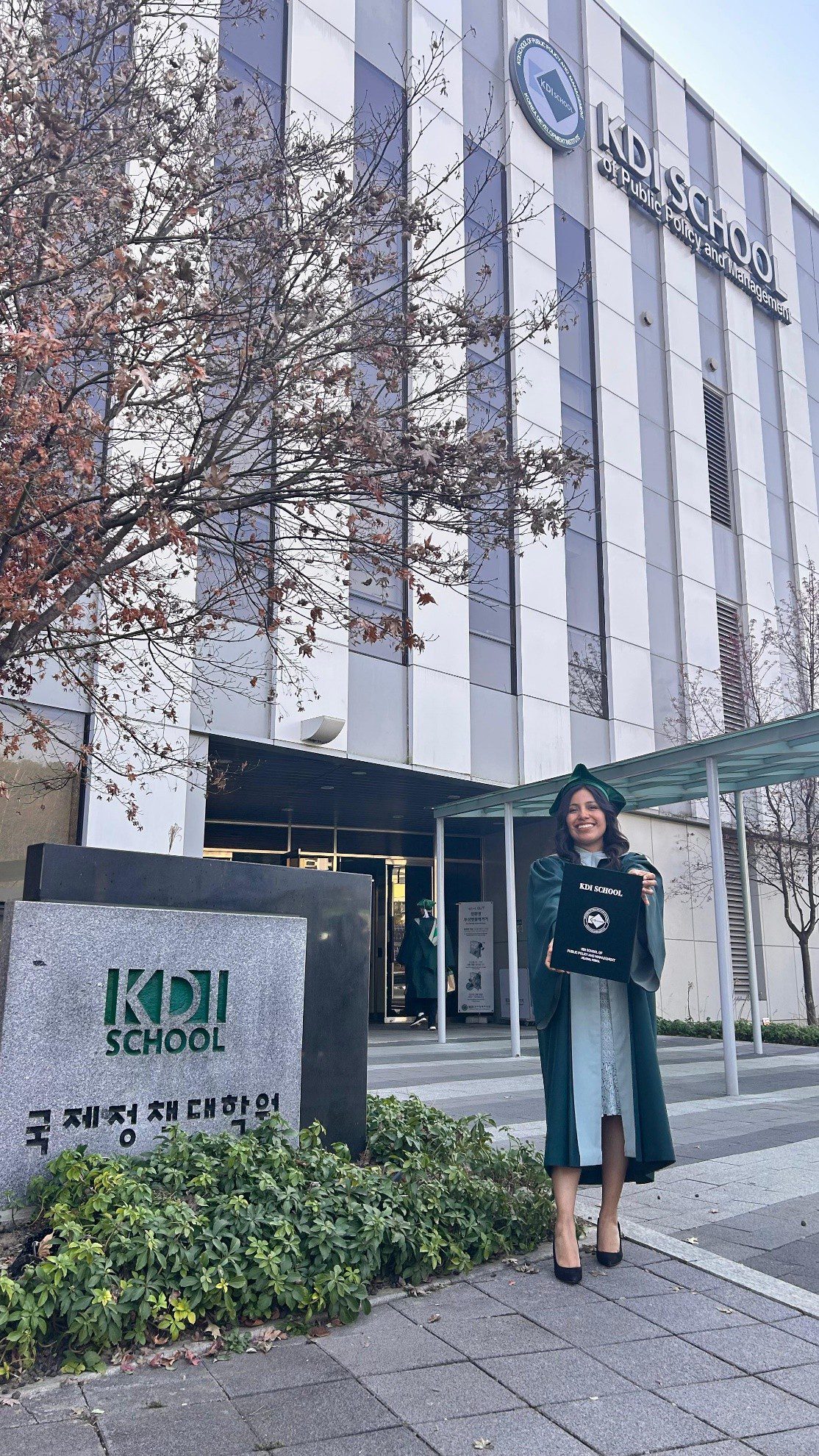How an Indonesian Scholar Secured the Fully Funded Global Korea Scholarship for an MA in Korean Language as a Second Language Education at Jeonbuk National University
- University: Jeonbuk National University, South Korea
- Degree: Master’s in Korean Language as a Second Language Education
- Previous Education: Bachelor’s in Korean Language, National University, Jakarta, Indonesia (graduated with a GPA of 3.8/4.0)
- Scholarship: Global Korea Scholarship (GKS) – Fully funded
- GKS Track: University Track (Applied directly to Jeonbuk National University)
- Language Proficiency: TOPIK Level 4 (achieved in 2022)
Social Media:
LinkedIn: linkedin.com/in/putri-miranti-60a275181/

The Journey
Hello, my name is Putri Miranti, and I am from Indonesia. I’m 24 years old and a 2024 GKS Graduate awardee. I will be pursuing my Master’s degree at Jeonbuk National University, majoring in Korean Language as a Second Language Education. I chose this major because I have experience working as a Korean tutor and teacher in Indonesia, both online and on-site. I’ve taught students of various ages, from young children to adults in their 40s. My teaching experience includes formal institutions like universities and high schools, as well as non-formal institutions such as Korean language courses. With this background, I’ve decided to dedicate my career to becoming a professional Korean language teacher. That’s why I’m pursuing further education in this field through my Master’s degree.
Scholarship Details
My scholarship is called the Global Korea Scholarship (GKS). I first learned about this scholarship from my lecturers during my bachelor's degree, as some of them were alumni of this program. Back then, it was known as the Korean Government Scholarship Program (KGSP). I chose Jeonbuk National University for my master’s degree, and before officially starting my studies, I am currently enrolled in a Korean language institution as part of the scholarship requirement. Every GKS scholar is required to achieve at least Level 3 in the Test of Proficiency in Korean (TOPIK) before beginning their degree program.
Regarding the financial support, during my one-year Korean language program, I received a monthly allowance of 1,175,000 KRW. Once I start my degree, this amount will increase to 1,300,000 KRW per month. The scholarship also covers various expenses, including visa application fees, a one-way ticket to Korea, and visa extension fees. Additionally, all tuition fees are fully covered, so we don’t have to pay anything for our studies. For living expenses, we manage our budget using the monthly allowance. Personally, I find it sufficient—I can even save some money every month and occasionally send some back to my family in Indonesia.
Educational Background
My previous degree was in Korean Language. I studied at a National University in Jakarta and graduated with a GPA of 3.8 out of 4. Initially, I didn’t realize that I wanted to be a teacher. During my bachelor’s degree, I took a course on teaching Korean, where we learned about curriculum design and teaching methods. However, at that time, I didn’t feel particularly drawn to it. Teaching seemed difficult—translating my own understanding into something others could grasp felt like a huge challenge. Since even learning Korean for myself was tough, I doubted whether I could teach others effectively. After graduating, one of my seniors invited me to join her as a freelance tutor. My first teaching experience was an EPS-TOPIK class with 50 students in one session. Before that day, I had never taught in my life. I didn’t expect to continue teaching after that class, but something changed in me. I realized that the knowledge I had—something I often doubted—was actually valuable to others. Seeing my students’ enthusiasm, knowing that my lessons were helping them reach their dreams, and hearing their words of appreciation made me feel incredibly fulfilled.
I came to understand that teaching isn’t just about delivering knowledge—it’s about being part of someone’s journey. Some students even told me that they would always remember me when they achieved success, and that deeply touched me. That was the moment I truly fell in love with teaching. From then on, I continued teaching, exploring different methods, and gaining experience in both online and on-site classes. I learned that every student is unique, and I couldn’t teach everyone the same way. Over the past few years, I’ve received overwhelmingly positive feedback from my students, which has been very encouraging.
However, I also realized that while I had the passion and experience, I lacked formal training in teaching. I had never studied teaching methods in-depth; I simply relied on intuition. That’s why I decided to apply for the Global Korea Scholarship—to learn how to teach Korean in its native country. My father always said, “The best way to learn something is to study it in its place of origin.” And now, here I am, taking that step toward becoming the best Korean language teacher I can be.
How Did You Prepare to Apply to Jeonbuk National University?
Before applying for this scholarship, I made several preparations. As a Korean language major graduate, I had already obtained TOPIK (Test of Proficiency in Korean) Level 4 in 2022, shortly after graduating. That same year, I applied for the Global Korea Scholarship for the first time in February 2023. This scholarship is open every year, usually around January or February for graduate programs and September or October for undergraduate programs. Unfortunately, I was rejected on my first attempt. That rejection hit me hard. I felt insecure about my abilities and questioned whether I was truly good enough to receive such a prestigious scholarship. For two to three months after the announcement, I struggled with self-doubt and even considered giving up on the scholarship entirely. I thought, Maybe this isn’t for me. Maybe I should just move on and accept my current life.
At that time, I was mainly working as an online Korean teacher, which meant I spent most of my days at home. Since the world was still adjusting to the post-COVID-19 new normal, I rarely had the chance to meet people in real life. Over time, I realized that I couldn’t stay in my comfort zone forever. I needed to challenge myself and gain broader experiences. So, I made a big decision—I resigned from my online teaching job and started searching for new opportunities. Eventually, I found a position at a Merchant Marine Higher Education, where I taught Korean in a club-style program. This was my first experience teaching university-level students, even though it wasn’t part of a formal education. It was a new challenge, but I enjoyed it.
Shortly after, I also secured a teaching job at a high school in Indonesia. This became my first official experience in a formal educational institution. Unlike my previous teaching experiences, where students voluntarily joined classes, here, every student was required to learn Korean. I created midterms, final exams, and student evaluations, and I was responsible for grading and reporting their progress, just like a real school teacher. It was a major shift for me and an incredibly valuable learning experience.
These new experiences became my stepping stones. They allowed me to refine my skills, broaden my perspective, and most importantly, improve my scholarship application. When I applied for GKS again in 2024, I had a much stronger story to tell. I had grown, not just as a teacher but as a person. Looking back, I never expected to be in this position, but everything I went through helped me build a better application, and ultimately, it brought me to where I am today.
How Did You Prepare to Apply for the Global Korea Scholarship?
Preparing for this scholarship is not actually as difficult as it may seem. The GKS application process does not include any entrance exams or overly complicated procedures. Everything you need to know is available online, and the information is very detailed. You can find all the official guidelines on studyinkorea.go.kr.
The most important step when applying for this scholarship is reading the guidelines carefully. After being accepted, I realized that many of the questions people asked me were actually already answered in the guidelines. So, before asking anything, I highly recommend thoroughly reading the official documents. If you still have questions after that, you can contact the GKS team via email or phone—they provide official contact details for inquiries.
In addition to filling out the application, you need to prepare several key documents:
1. Personal Statement and Study Plan – These essays are crucial because they allow you to showcase your academic goals and personal motivations.
2. Recommendation Letters – I obtained mine from the head of my Korean Language Department, who was also a GKS alumnus. Since he was familiar with the application process, he provided valuable guidance. I also received help from my thesis supervisor, who proofread my essays and gave me academic writing advice. While I’m proficient in both Korean and English, I needed extra support in structuring my academic English properly.
3. Official Documents – This includes my family certificate, bachelor's degree certificate, and academic transcripts. Everything required is clearly listed in the guidelines, so as long as you follow the instructions, you won’t miss anything.
GKS is actually one of the more accessible scholarships to apply for. However, there are still some costs involved, such as document notarization and mailing fees. To cover these expenses, I saved up from my previous jobs.
For the application method, I applied through the University Track. Initially, I tried the Embassy Track in my first attempt, but I was rejected. However, if you don’t pass the Embassy Track, you still have another chance to apply via the University Track. Since the scholarship opens every year, you can always try again.
As for additional documents, I submitted my passport and TOPIK certification. I didn’t submit TOEFL, IELTS, or any other English proficiency test scores—only my Korean proficiency certificate.
So, that’s how I prepared for my GKS application. It took me two years to finally succeed, but looking back, all the effort was worth it.
What Do You Think Made Your Application Stand Out?
I once compared my personal statement from my 2023 application with the one I submitted in 2024, and the difference was significant. Within that one year, I grew a lot—I gained more experience, broadened my teaching horizons, and stepped out of my comfort zone.
Looking back, I realize that these experiences were what made my second application stand out. I don’t think of myself as someone particularly special, but the effort I put into improving myself made a real difference. Teaching in different places was challenging, but it was truly worth it. And now, here I am in Korea, achieving my goals—fully funded, with an allowance from the Korean government. So if I had to pinpoint the most impactful factor in my application, I would say it was my experiences. They shaped my growth and helped me create a much stronger application the second time around.
What Would You Have Done Differently if You Were Going Through the Process Again?
If I were to go through this process again, one thing I would definitely do differently is aim for TOPIK level 5 or 6 before applying. If I had achieved level 5 or 6, I wouldn’t have needed to take the one-year Korean language program, allowing me to start my master’s degree immediately and complete it in two years instead of three. Plus, scholars who enter with TOPIK 5 or 6 receive extra allowance from the Korean government, which would have been a great advantage.
I always keep this mindset: if others give 100%, we have to give 200%. I believe in doing everything to the fullest. Last year, I couldn’t fully maximize my application because I didn’t submit TOEFL, TOEIC, or IELTS. Even though English proficiency tests are just additional documents, they actually help strengthen an application by providing extra points. Since I already had TOPIK 4, I thought it was enough at the time, but now, I want to aim higher.
So, if I had the chance to redo this process, I would push myself more, improving both my Korean and English proficiency to make my application even stronger.
What Advice Would You Give to Those Looking to Apply for a Similar Scholarship?
If you’re planning to apply for the Global Korea Scholarship (GKS), my first piece of advice is to read the guidelines carefully and thoroughly. It's crucial to pay attention to every detail because the guidelines can change each year. Don’t rely solely on information from previous scholars, as they may not be aware of the latest updates or changes. The rules can evolve, so make sure you are looking at the most current information.
Take your time to read through the entire document and ensure you don’t miss any small details, as they could be very important. If you can't find an answer, don’t hesitate to reach out via the official contact or email for the GKS program. Don’t be afraid to ask questions—it's better to clarify things than to assume.
Additionally, if the guidelines mention optional documents, even if they say it’s okay to apply without them, I highly recommend submitting them if you can. Having those extra documents could make a significant difference in your application. Remember, this is a competitive process, and to stand out, you need to give it your all. If others are giving 100%, aim to give 200%. This doesn’t mean overexerting yourself, but rather putting forth your best effort in every aspect of the application.
I don’t think the GKS application process itself is too difficult or hard to navigate. However, the real challenge can come from managing your expectations. It’s easy to imagine your life in Korea—studying, experiencing the culture, and living your dream. But it's important to remember that not everyone will be accepted, and it's a competitive process. Mental preparation is just as important as preparing your documents. Sometimes, despite our best efforts, we might not get the result we hope for, and it can be tough. But stay resilient and keep your mindset healthy. Whether you win or lose, it’s part of the journey, and you’ll learn a lot from it.
Good luck, and remember to give it your best shot!
Want to submit your
scholarship journey?
Submit Your Story Here!
More Scholarship Recipients

My name is Arsh Dharani, and I am an international student originally from the Democratic Republic of the Congo (DRC). I am .... Read more

Hi! My name is Arawa. I’m a Marie Skłodowska-Curie PhD researcher working on AI-based neuroimaging biomarkers for Parkins .... Read more

Hello! My name is Alexandra Eras, and I am from Ecuador. I studied Economics and completed a major in Gender, Violence, and .... Read more

Leave A Comment